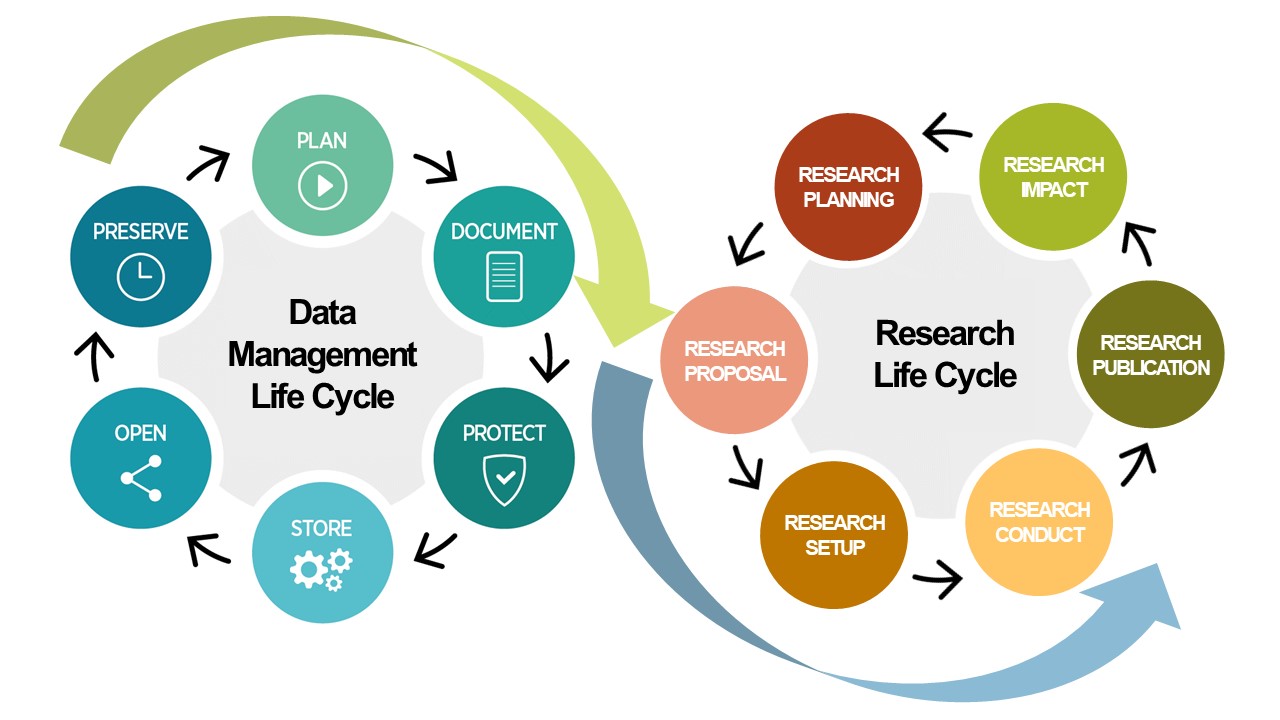This new article series presents the basics of research data management (RDM). The opening section of the series provides an overview of RDM: what it is, why it concerns all researchers, and how the RDM life cycle relates to the research life cycle.
(Tämä artikkeli on saatavilla myös suomeksi.)
Text: Mikko Ojanen, Tanja Lindholm & Liisa Siipilehto
Over time, RDM has been identified as a set of tasks that are separate from the scientific processes of a research project. RDM is the mechanical, managerial, and technical handling of research data, whereas the core content of a research project involves methodological or analytical data processing.
The tasks related to RDM are not entirely new; however, previously they have not been viewed as significant separate processes. Researchers typically have a good command of research life cycle tasks and their management is well covered in higher education. The processes related to an RDM life cycle have remained more or less hidden, yet the RDM tasks are the oil that keeps the wheels of the research life cycle running (see Figure 1).

RDM is about taking proper care of data and it involves all aspects of the data management life cycle: from planning data management to archiving data. It is of particular significance that data management planning (DMP) is an integral part of ever evolving RDM. Therefore, the changes in the RDM processes have an effect on a project’s data management plan, which should be updated frequently.
RDM skills are fundamental research skills and are required by everyone handling a project’s research data. Alongside the growing acknowledgement of RDM as a separate process, the need for new expertise – and even a new profession – has gradually emerged. Learning RDM skills and integrating them into a project workflow is often a slow process – at first. However, once the skills become routine and the tools are adopted, RDM becomes tacit knowledge – a researcher’s every day know-how – that can be applied across multiple projects.
Learning RDM skills and integrating them into a project workflow is often a slow process – at first. However, once the skills become routine and the tools are adopted, RDM becomes tacit knowledge – a researcher’s every day know-how – that can be applied across multiple projects.
A researcher can save significant resources (both time and money) by paying attention to the RDM components and learning how to avoid RDM hiccups. This will also ensure that the project is conducted effectively. Mastering the RDM life cycle and its components will help keep the research life cycle running smoothly. A research project can be severely hindered or even halted when the components in the RDM life cycle are interrupted.
We will take a closer look at the different components of RDM in the next part of this article series.
Research Data Management – know your data!
|

